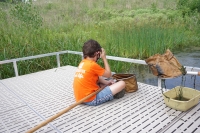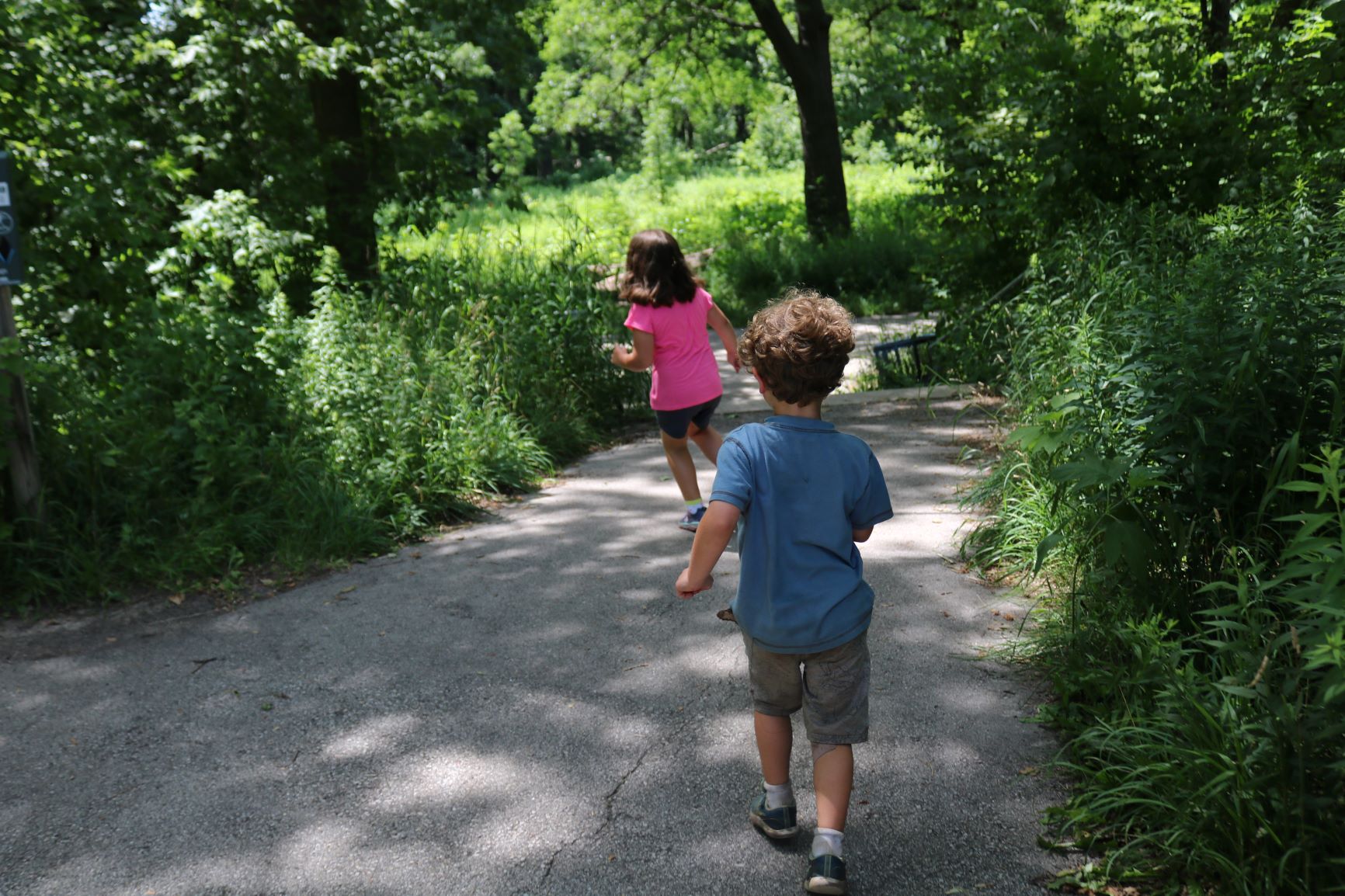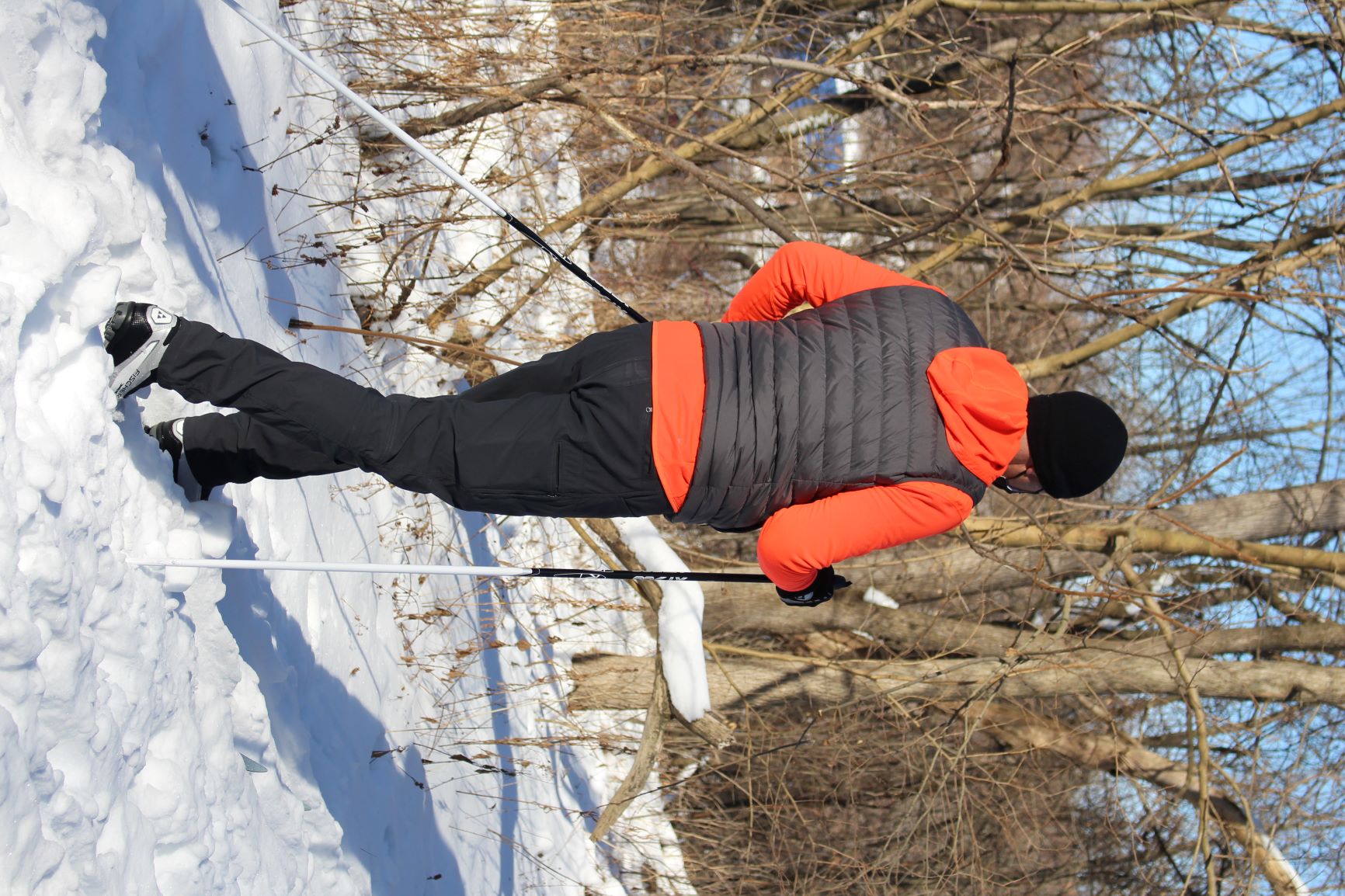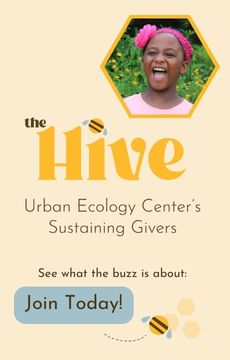And, it’s not just far-away-nature that yields benefits! Pockets of urban nature can bring about the same gains. A study published in Proceedings of the National Academy of Science found that people who walked for 90 minutes in a natural area, as opposed to participants who walked in a high-traffic urban setting, showed decreased activity in a region of the brain associated with a key factor in depression. These findings help inform the movement worldwide to make cities more livable, and to make nature more accessible to all who live in them - a core tenant of the Urban Ecology Center’s mission.
Time in nature is found to have a positive effect on mood and aspects of cognitive function, including working memory2. Investing in nature yields tangible benefits to our mental health.
More green-time less screen-time
A review of 186 studies found time spent in woods, parks, and nature reserves positively affects both kids' psychological well-being and academic achievement3. Meanwhile, screen time – time spent watching TV, computers, or playing video games – was associated with poor psychological outcomes, including increased mental illness, poorer cognitive functioning, and poorer academic achievement. It’s noted in these studies that kids from low socioeconomic backgrounds are under-represented in these studies, signifying the issue could be worse than anticipated. The prevalence of mental illness among children and adolescents is increasing globally, and in particular, depression and anxiety are leading causes of reduced quality of life. Nature may be an underutilized public health resource for youth psychological well-being in an era of high-tech.
Positive benefits for physical health, too
Physicians are taking note of the positive effects nature can provide, by prescribing time outdoors as the best possible cure for a growing list of ailments. Scientists confirm that “Exposure to natural stimuli lowers blood pressure, reduces stress-hormone levels, promotes physical healing, bolsters immune-system function, raises self-esteem, improves mood, curtails the need for painkillers, and reduces inflammation.”4
Growing up around greener spaces has consistently been linked to better health outcomes, and new research suggests these benefits could last a lifetime. A study published in 2018 found that exposure to green spaces is correlated with structural changes in a developing kid's brain5. In short, there is compelling evidence to support that the way we design cities has a direct impact on the mental health of future generations. Ensuring natural spaces for children, green schoolyards, nature curriculum, etc. is critical for our youths’ future. Access to nature is crucial to our continued health.
Lianna Bishop is a volunteer and former staff member of the Urban Ecology Center.
Citations:
[1] https://psycnet.apa.org/record/2009-24546-003
[2] https://www.sciencedirect.com/science/article/abs/pii/S0169204615000286
[3] https://journals.plos.org/plosone/article?id=10.1371/journal.pone.0237725
[4] https://www.outsideonline.com/2393660/science-newest-miracle-drug-free
[5] https://ehp.niehs.nih.gov/doi/10.1289/EHP1876







